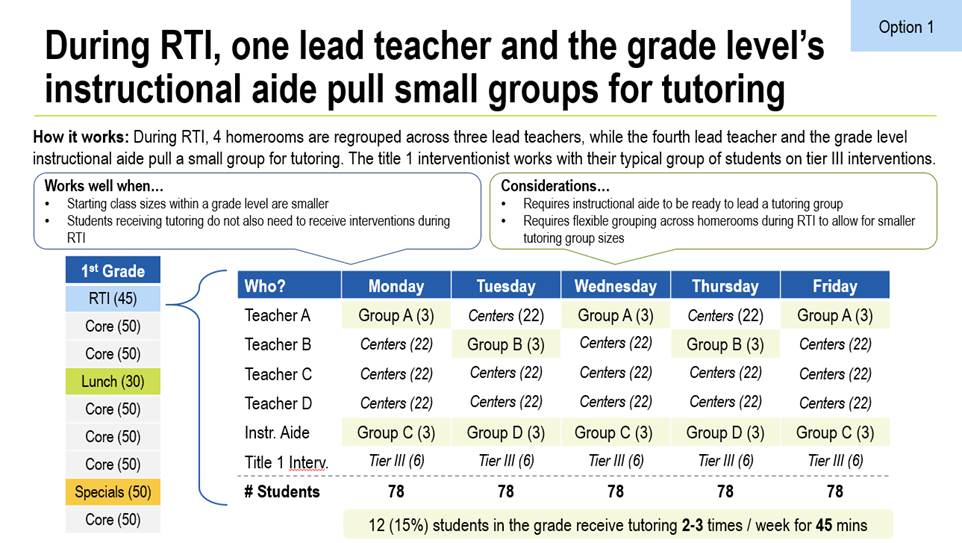
Following the historic infusion of federal dollars through the Elementary and Secondary School Emergency Relief (ESSER) Funds as part of COVID-19 recovery, Education Resource Strategies (ERS) and SCORE partnered with Tennessee districts to provide guidance on how best to direct those funds. Through this network of six districts, called the Recovery and Reinvention Resources (RRR) Network, leaders collaborated and learned from each other to craft recovery plans that best suit the needs of their schools. This post is part of a series spotlighting the innovative and intentional steps taken by these districts.
To accelerate student learning slowed by the pandemic, over the last year Washington County aimed to significantly increase the number of students receiving tutoring support. Our team launched an after-school tutoring program at the start of the 2021 school year, but we knew from the outset that some students would not be able to stay after school and that after-school tutors would be hard to maintain when ESSER funds expire in 2023.
To only reach a subset of students who were able to stay after school wasn’t enough for us; we knew we could do more and felt that now was the time to do it. To increase student accessibility and the financial sustainability of tutoring, we incorporated an additional strand of tutoring during the school-day Response to Instruction and Intervention (RTI2) blocks. This allowed us to target students who fall outside designated Tier II and Tier III intervention groups but still need additional academic attention and support.
To ensure a successful launch of in-school tutoring during RTI2 blocks, we developed staffing and scheduling models that leverage instructional assistants and librarians to maintain appropriate class sizes for students not receiving tutoring. The pilot model currently in place requires highly motivated instructional assistants to participate in district-provided training, after which they tutor students while being closely mentored by experienced teachers.

The program has been a resounding success so far — tutors and supervisors alike have expressed deep satisfaction and some participating students have already experienced substantial growth and graduated out of the tutoring program.
We intentionally started the initiative as a small pilot to ensure the initial class of tutors received strong district support. Now that our district team has achieved demonstrated program effectiveness, we’re eager to scale up and reach as many students as possible.
To successfully implement this program, our school leaders had to create staffing models and design schedules that set us up to succeed. We did this by freeing up teacher time, adding staff to tackle unmet student needs, and expanding the reach of highly effective teachers (e.g., through teacher leadership models). To implement similar programs and meet the challenges created by the pandemic, we encourage other districts to embrace innovation in their schedules and staffing rosters as we did here in Washington County.
Cindy Hayes is the chief academic officer for Washington County Schools.
Read More In This Series:
